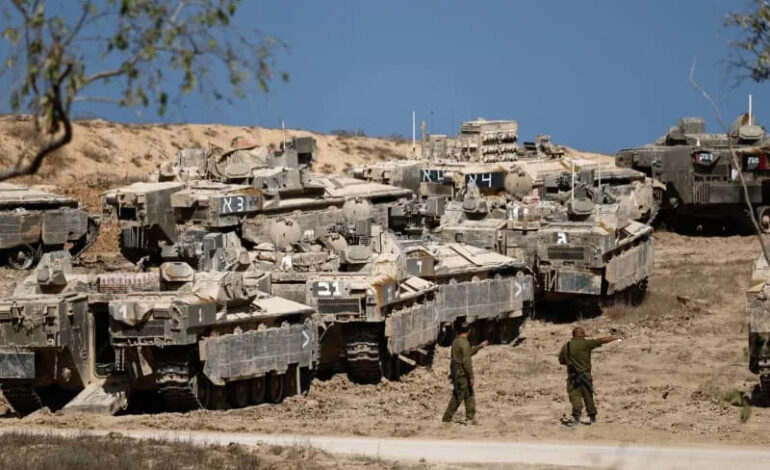IDF Responds to Hamas Missile Attack with Strikes in Rafah

The Israeli Defense Forces (IDF) confirmed on Sunday that it conducted airstrikes in Rafah, a city in the southern Gaza Strip, following a missile attack by Hamas. Earlier in the day, the Palestinian militant group reportedly fired an anti-tank missile at Israeli military engineering vehicles operating in the area. The IDF’s action reflects an escalation in hostilities after Hamas’s aggressive actions.
In response to the attack, Israeli Prime Minister Benjamin Netanyahu convened a situational assessment with Defense Minister Israel Katz and IDF Chief of Staff Lt.-Gen. Eyal Zamir. The meeting aimed to evaluate Israel’s military response to the reported incidents, although the IDF did not immediately provide further details on the situation.
Hamas officials criticized Netanyahu, accusing him of undermining the ceasefire agreement. Senior Hamas leader Izzat al-Rishq stated that the group remains committed to the ceasefire while alleging that Israel continues to violate the terms. He expressed concerns that Netanyahu is using the tensions to appease his right-wing coalition partners, which he described as “extremist” elements in the Israeli government.
In a show of support for military action, National Security Minister Itamar Ben-Gvir urged Netanyahu to direct the IDF to resume full-scale operations in Gaza, asserting that “the Nazi terrorist organization must be completely destroyed – and preferably as soon as possible.” Additionally, Finance Minister Bezalel Smotrich expressed his sentiments on social media, simply stating “War!” in a post on X/Twitter.
This escalation follows a warning from the United States State Department, which indicated on Saturday that it had informed nations guaranteeing the Gaza ceasefire of “credible reports” suggesting an imminent violation by Hamas. The State Department stated that any planned attacks against Palestinians would constitute a serious breach of the ceasefire agreement.
Hamas dismissed the U.S. warning, alleging that it was aligned with what they termed as misleading Israeli propaganda. Since the ceasefire began, reports indicate that Hamas has been responsible for the deaths of at least 32 individuals, targeting clans opposed to their rule in the Gaza Strip.
As the situation develops, both sides continue to issue statements reflecting their positions, but the potential for further escalation remains high. The international community is closely monitoring the developments as concerns grow over the implications for civilian safety in Gaza.






